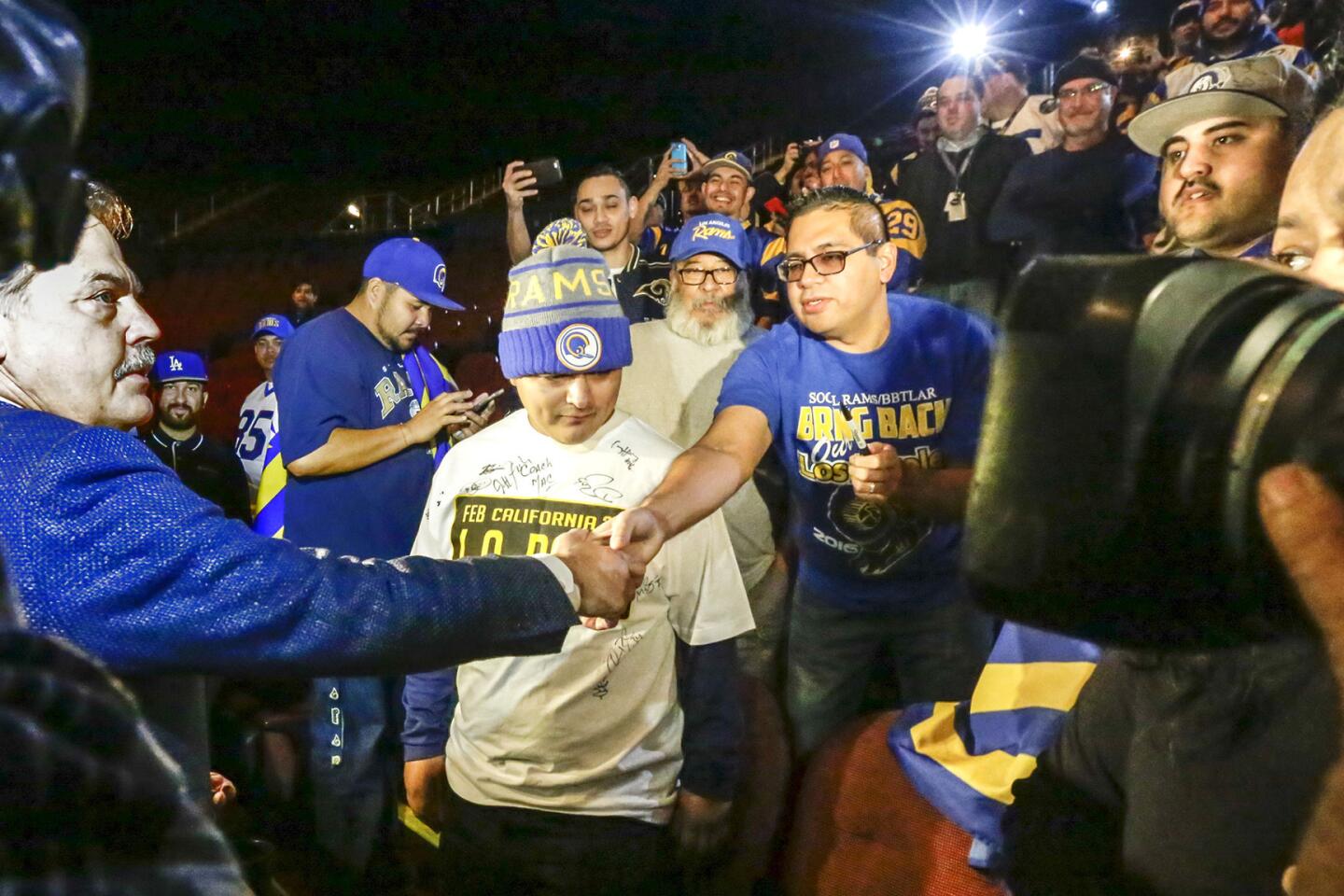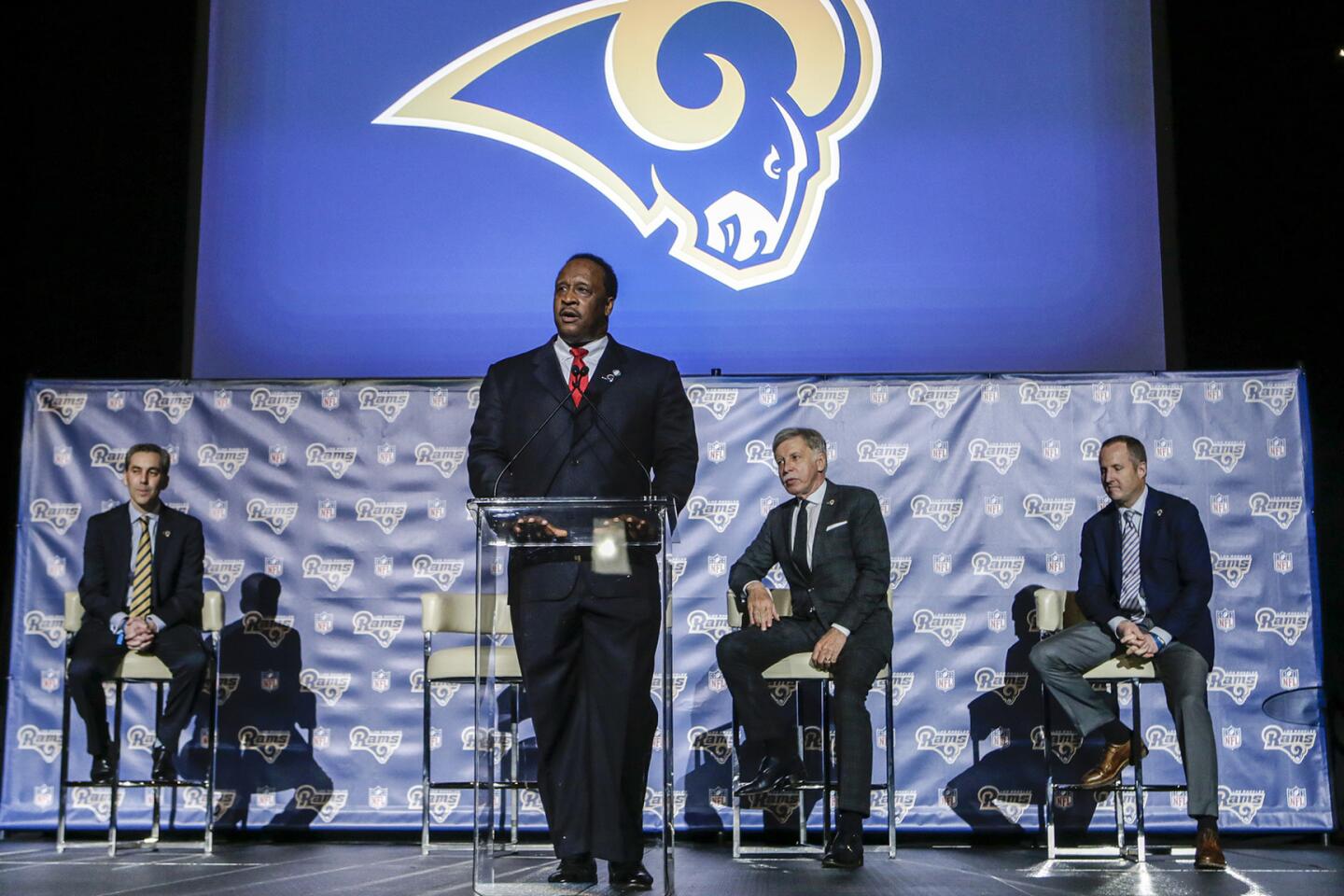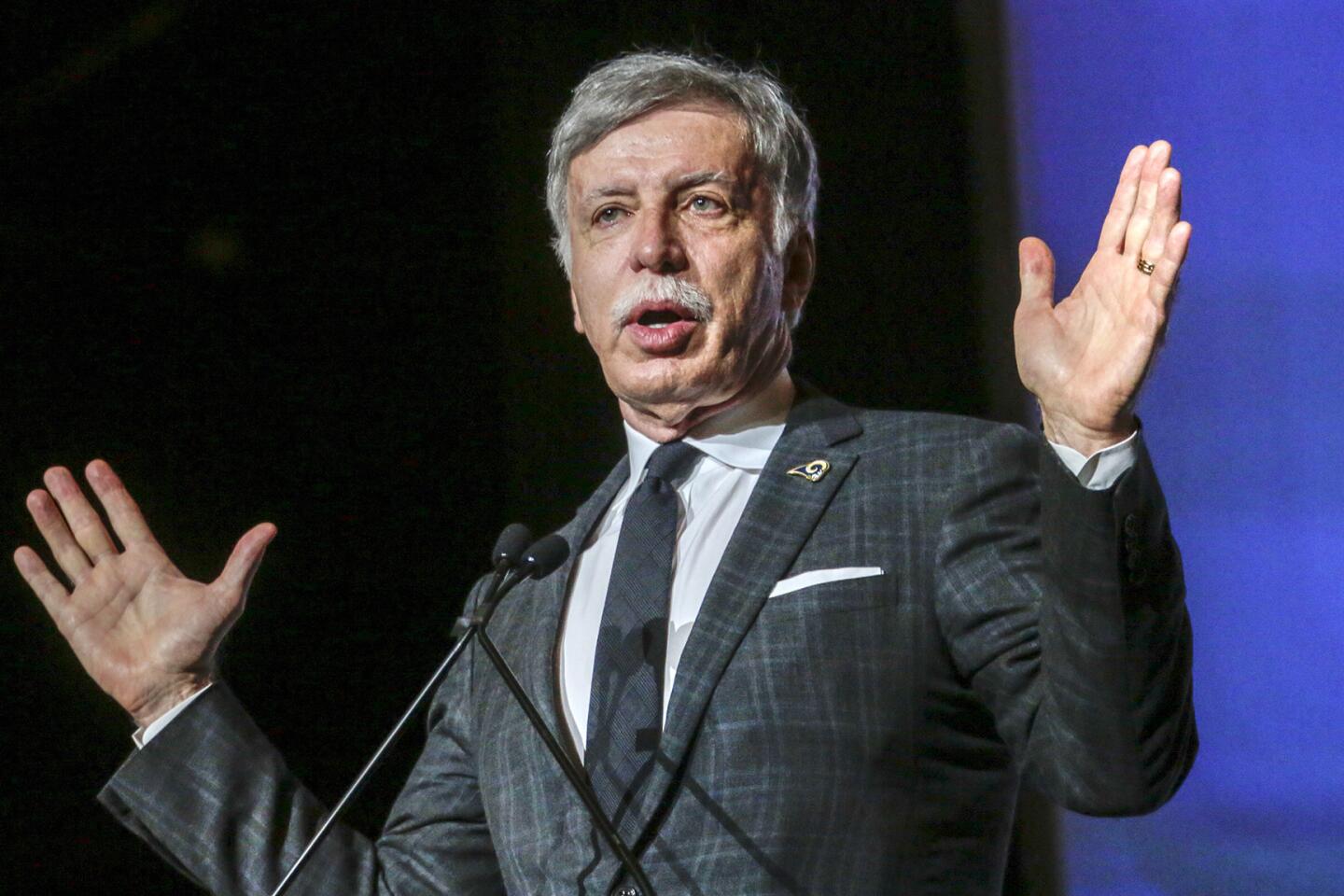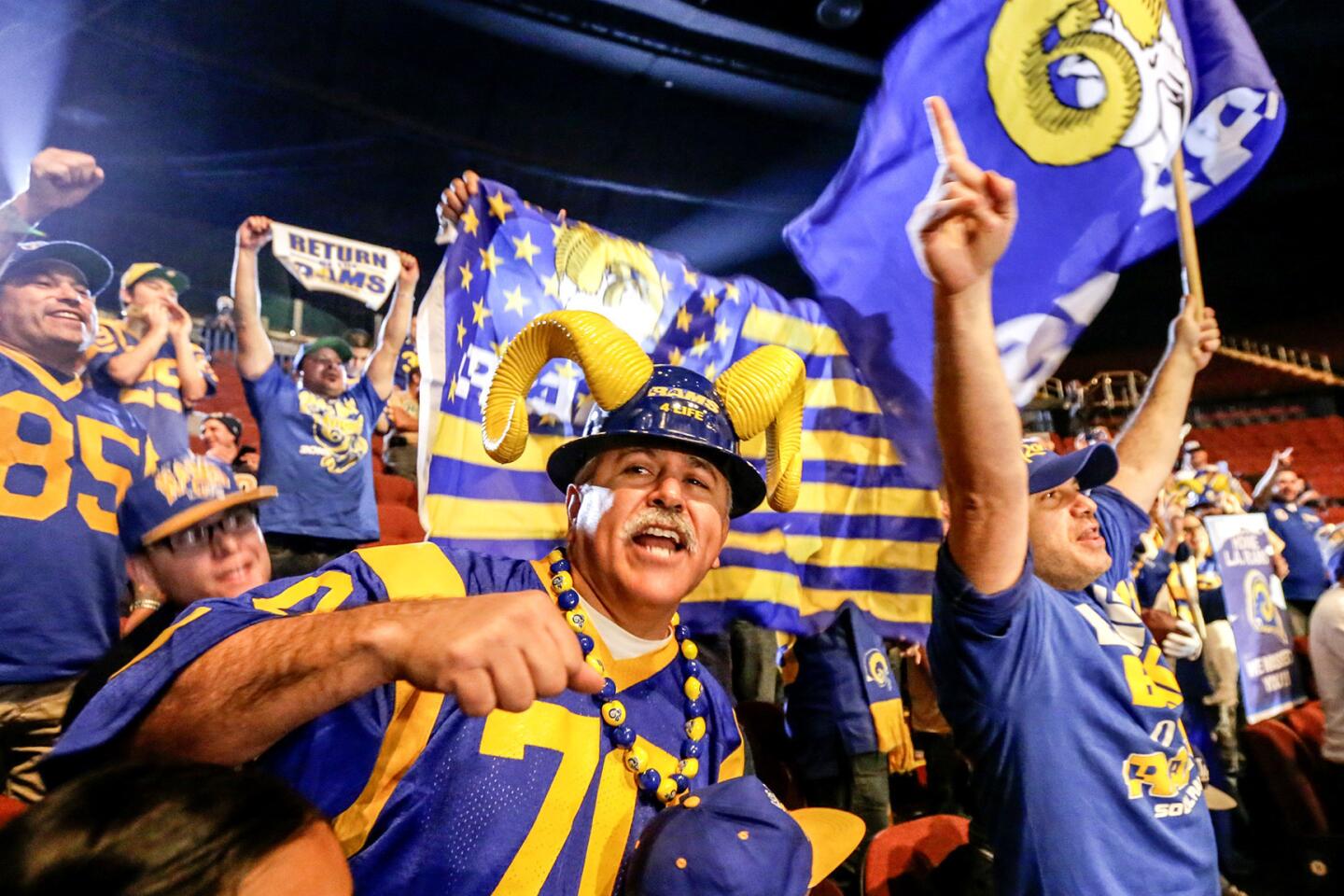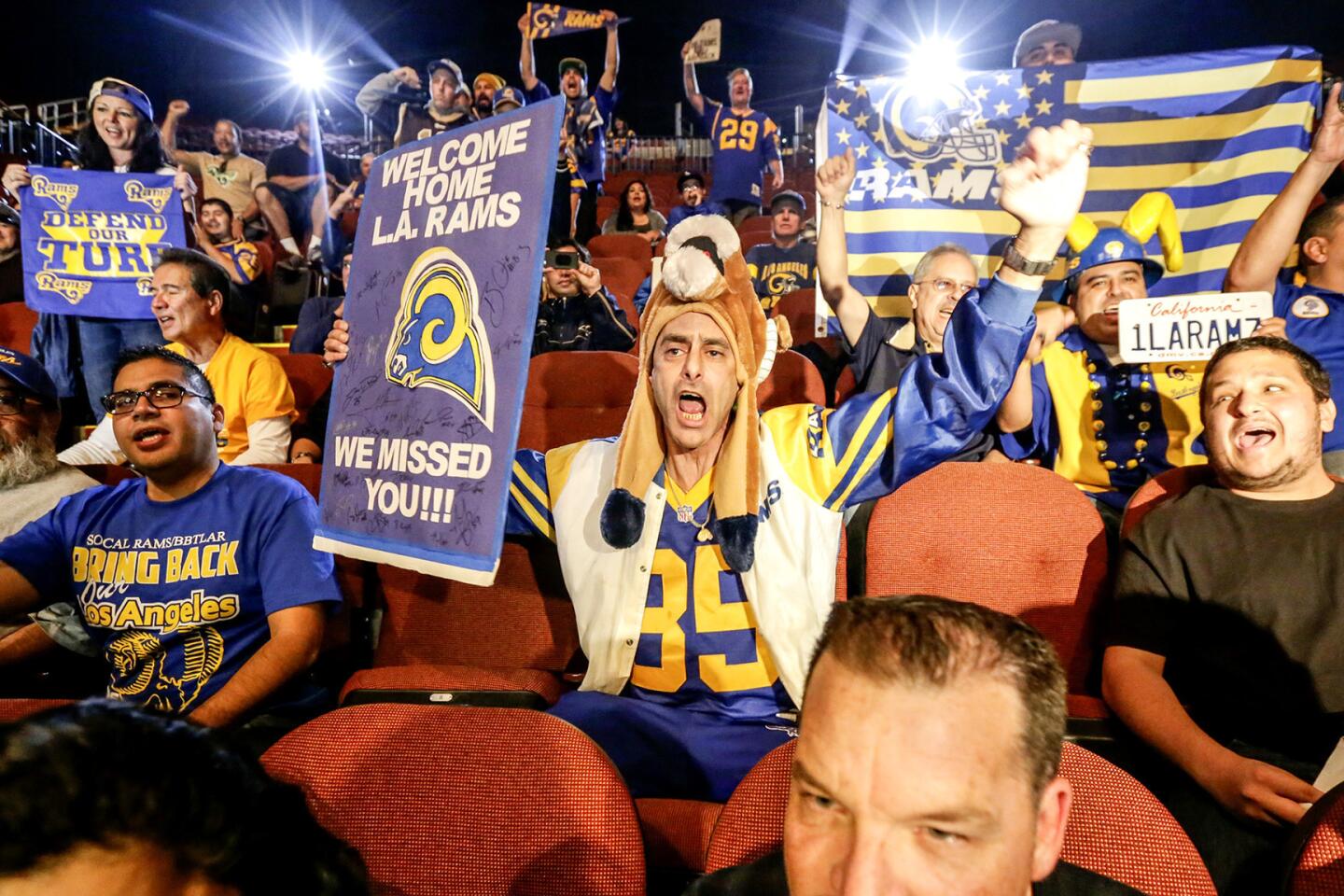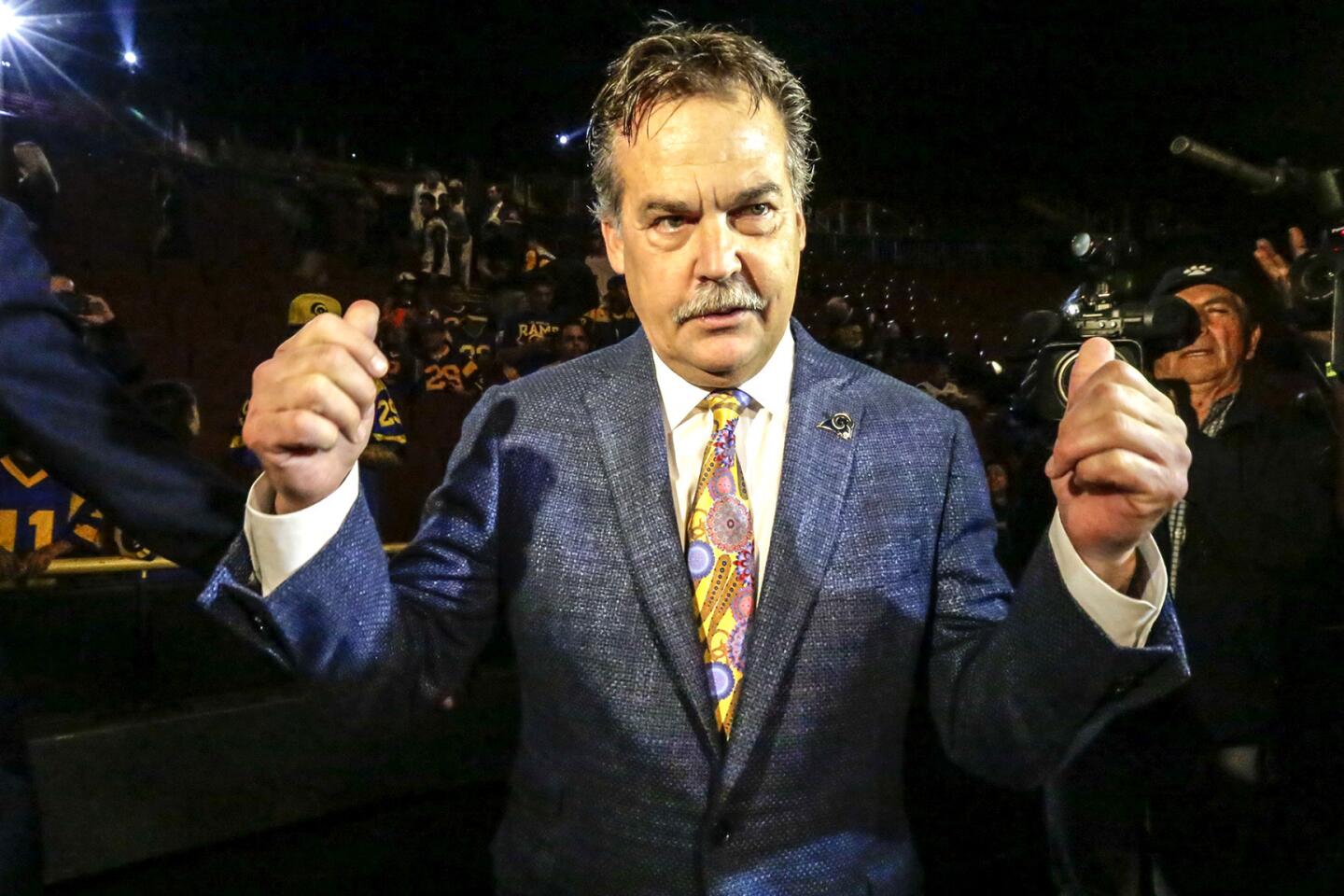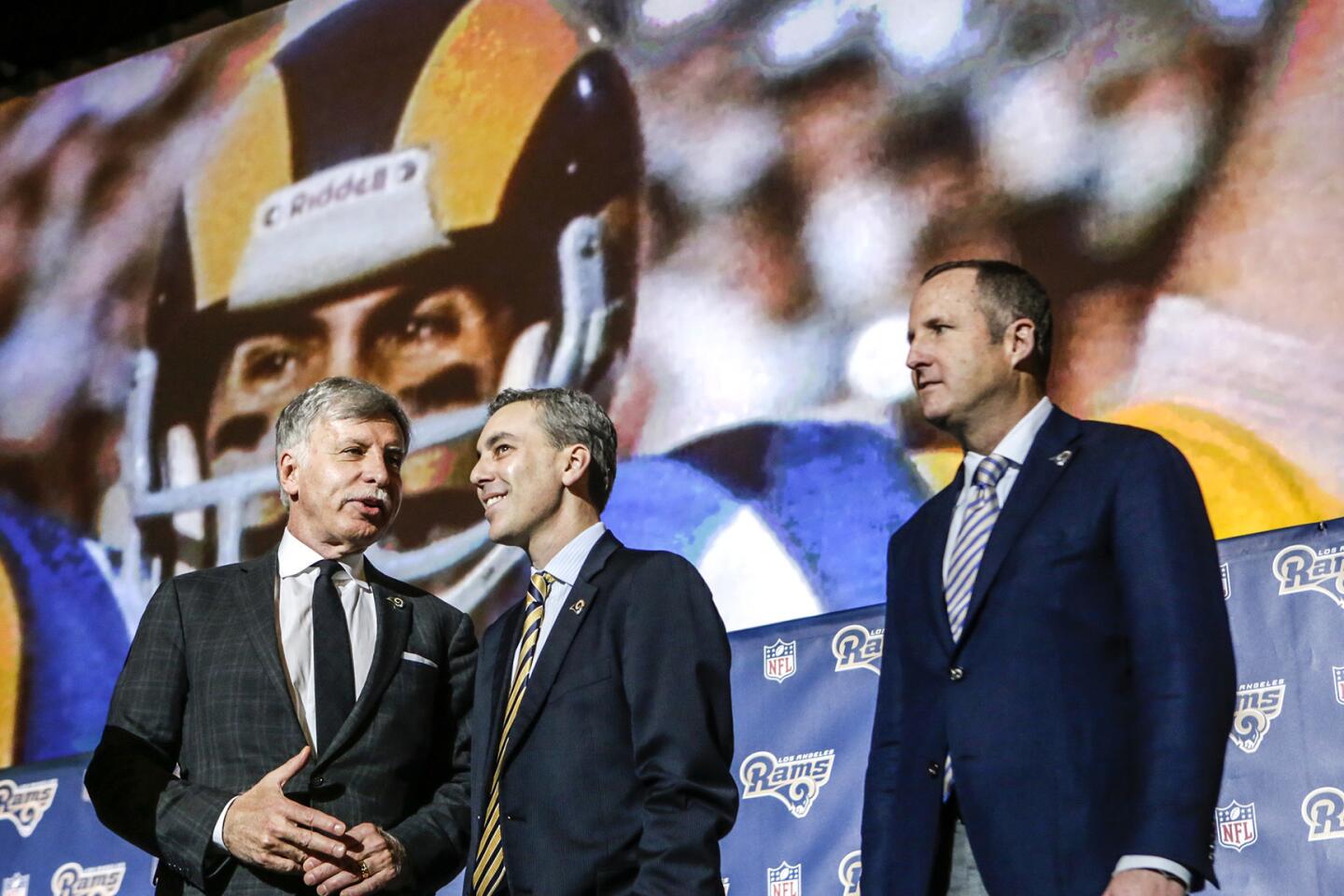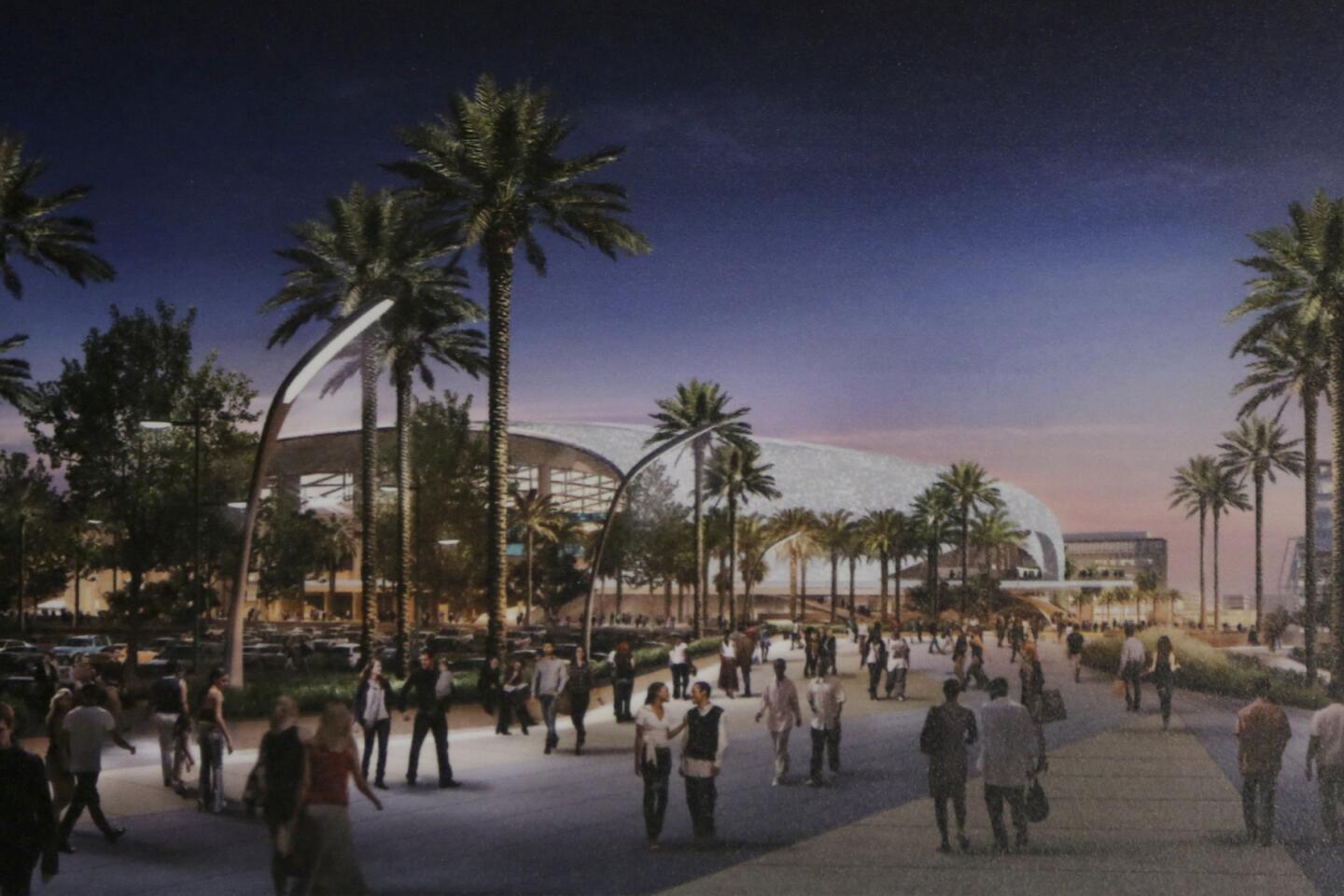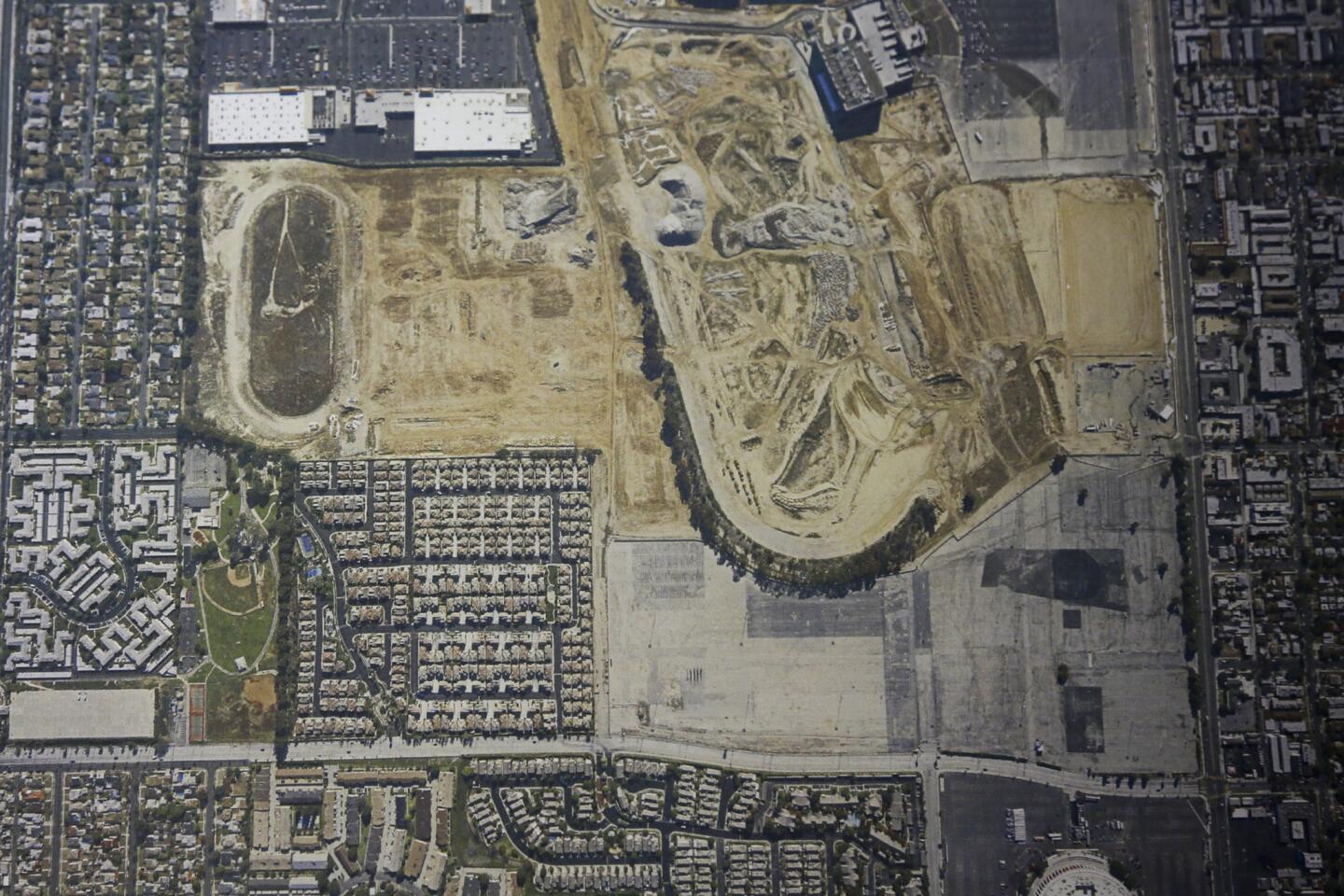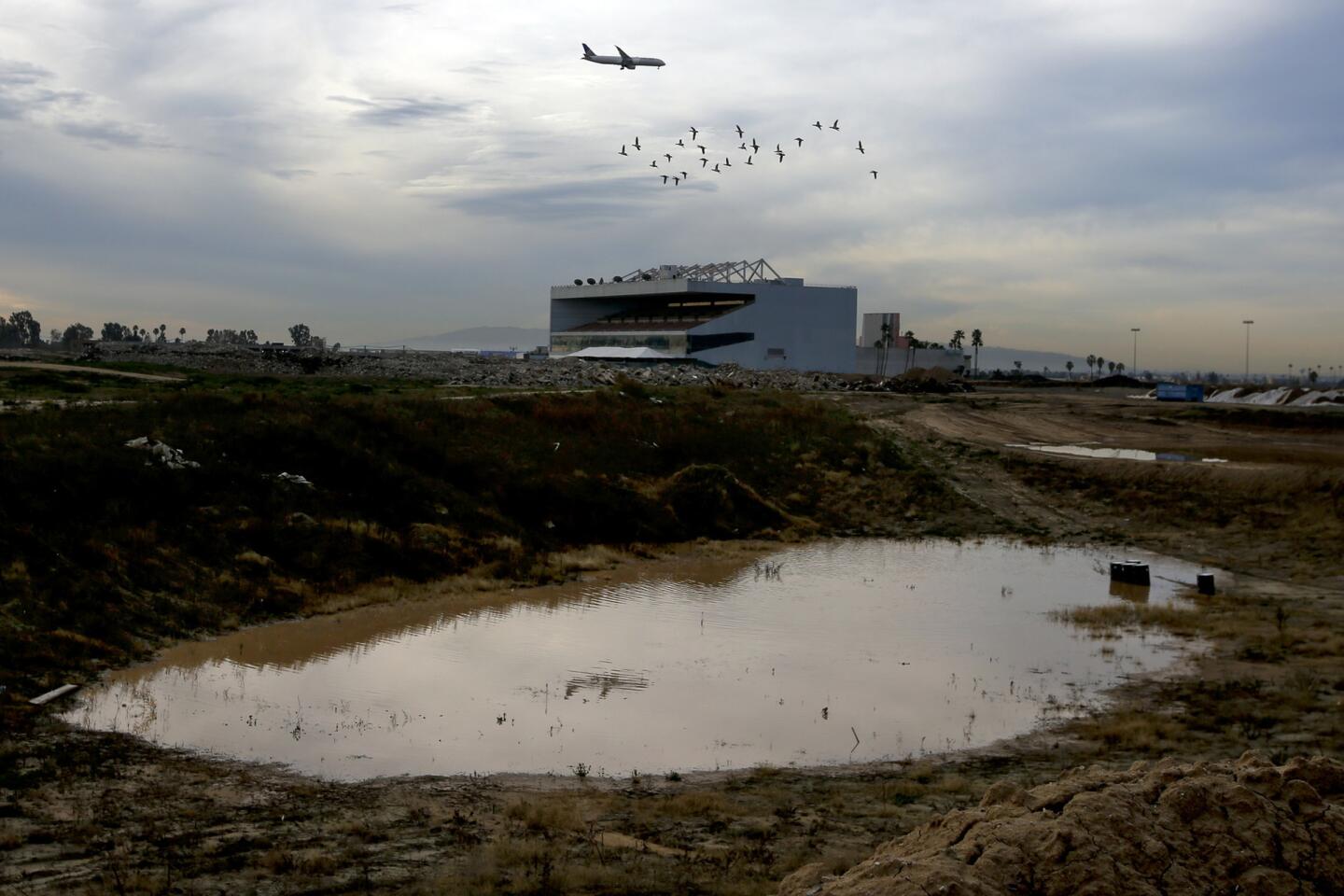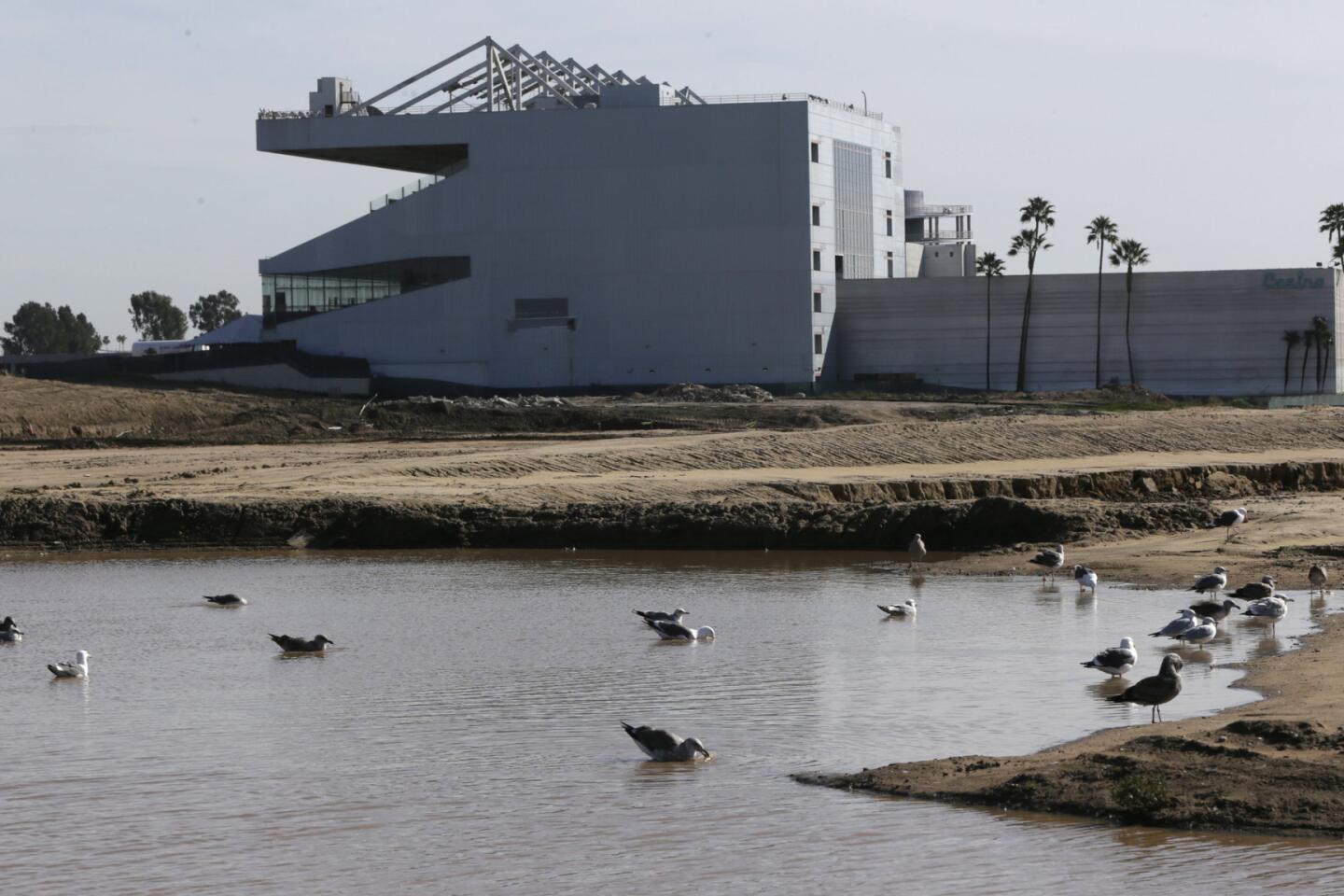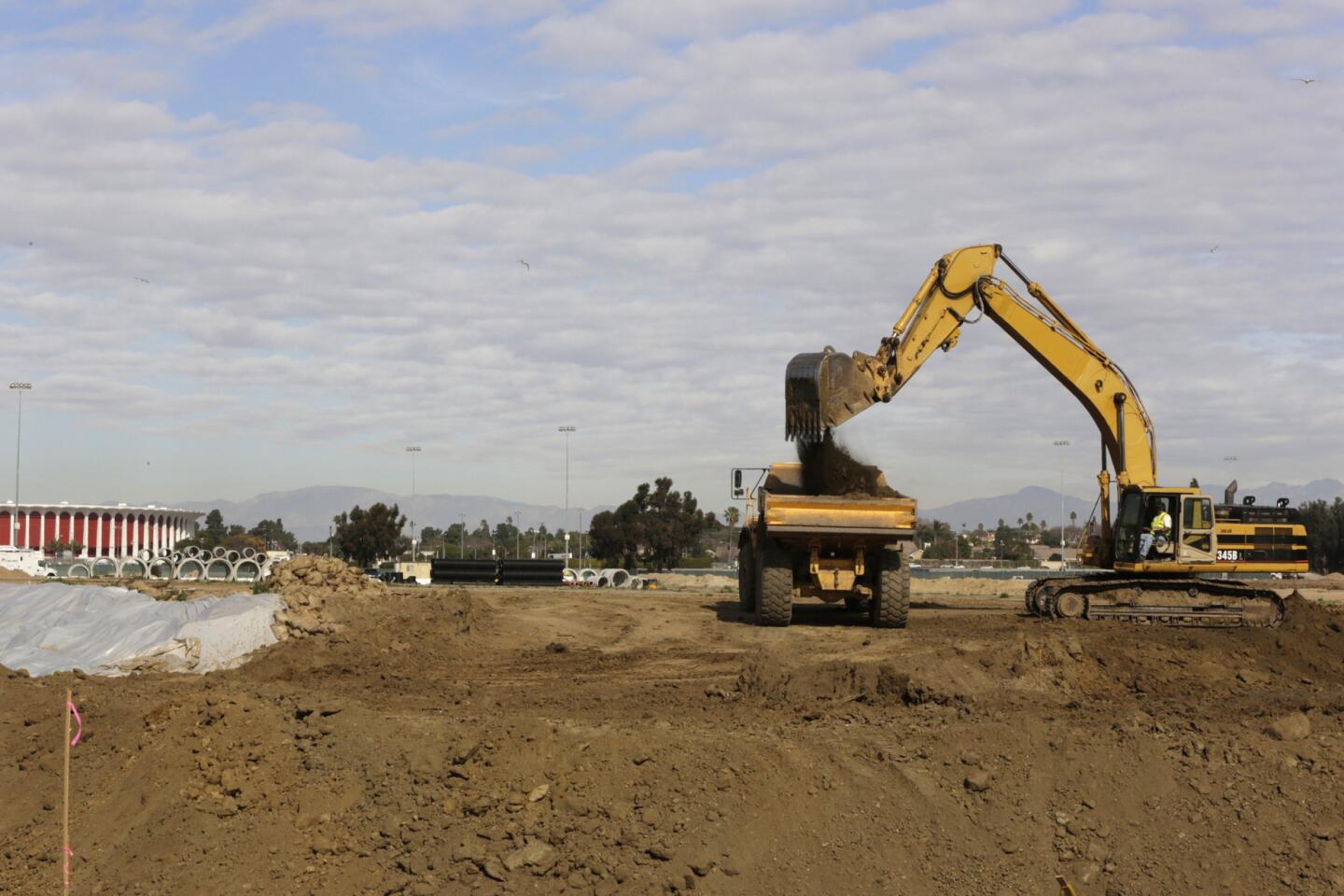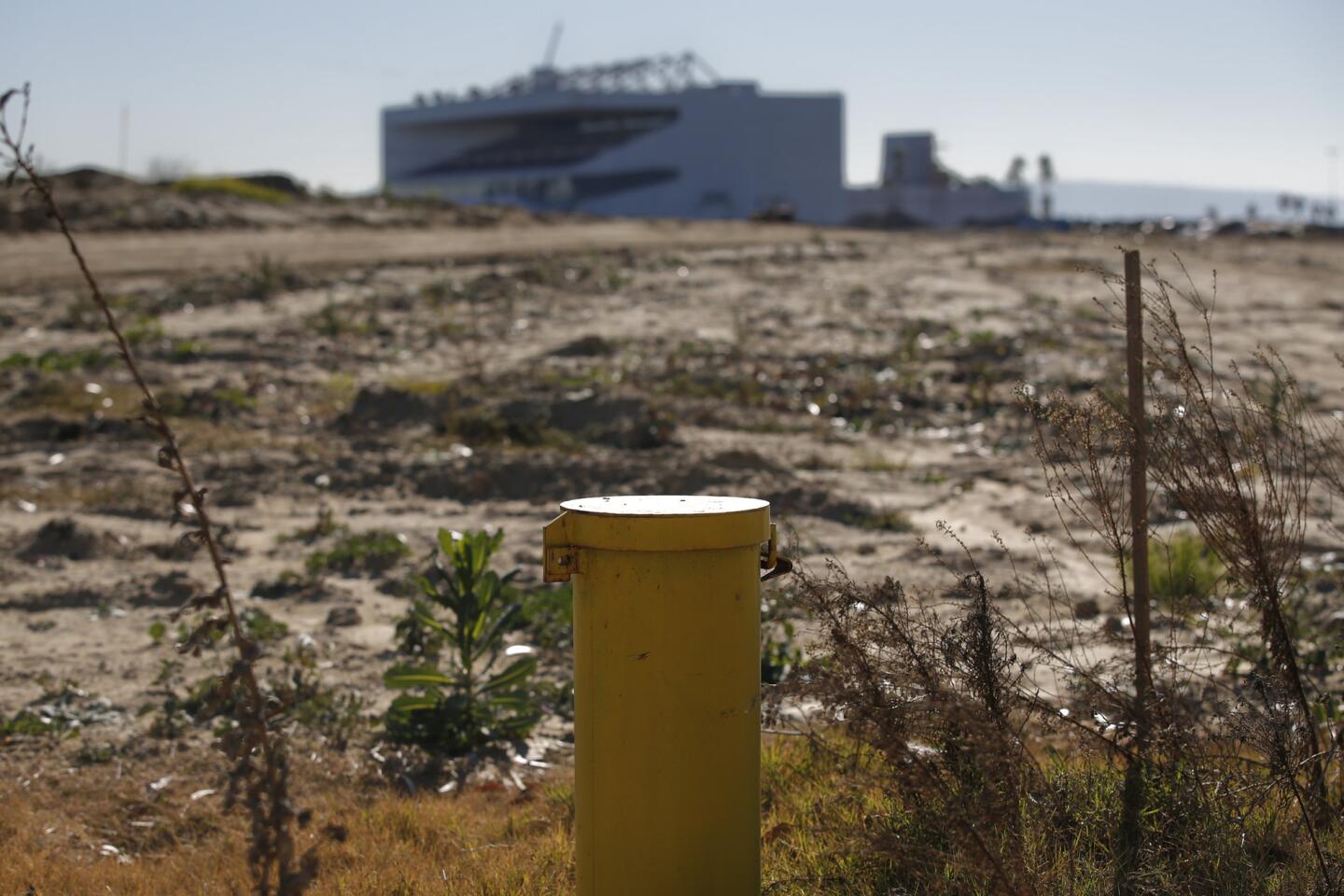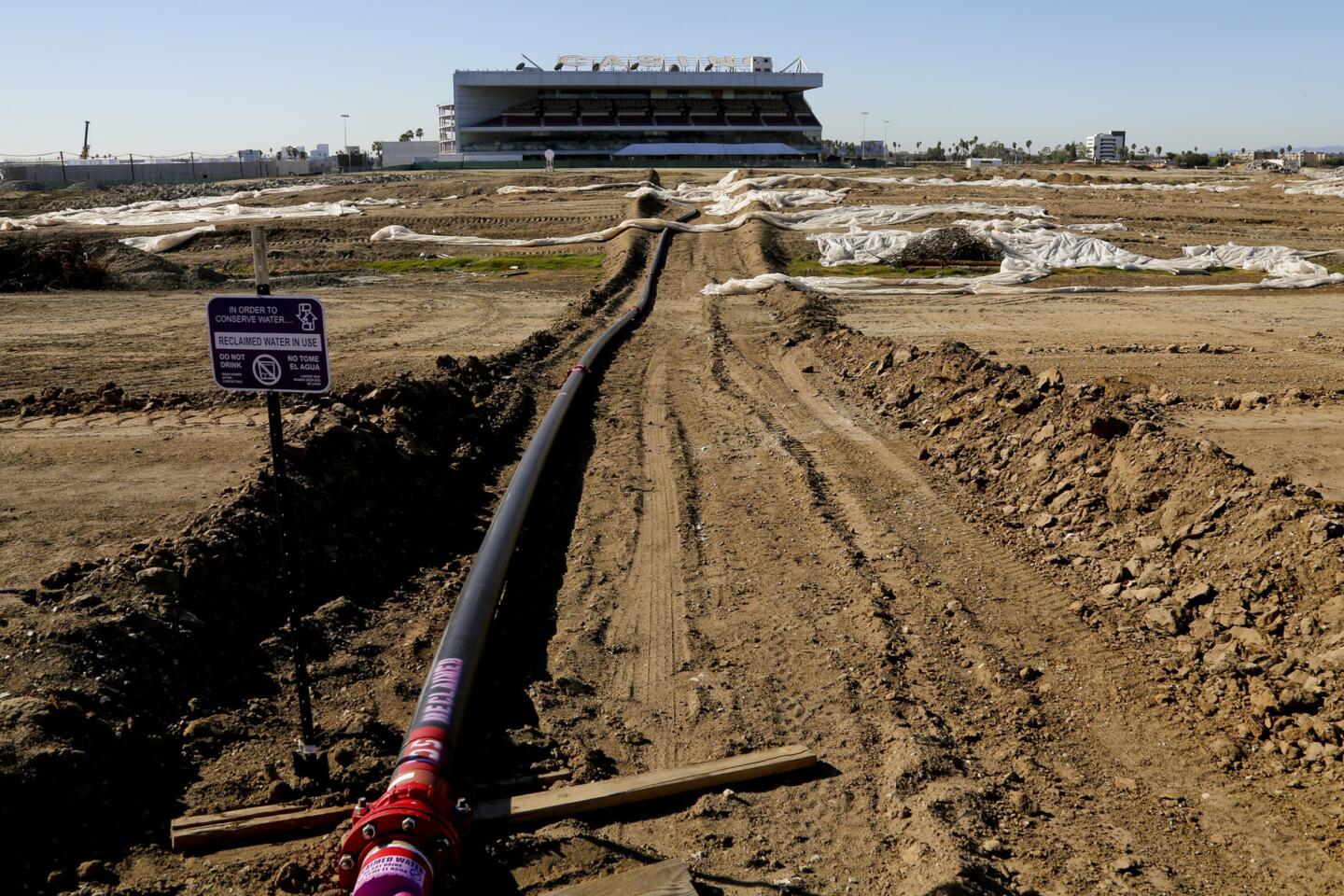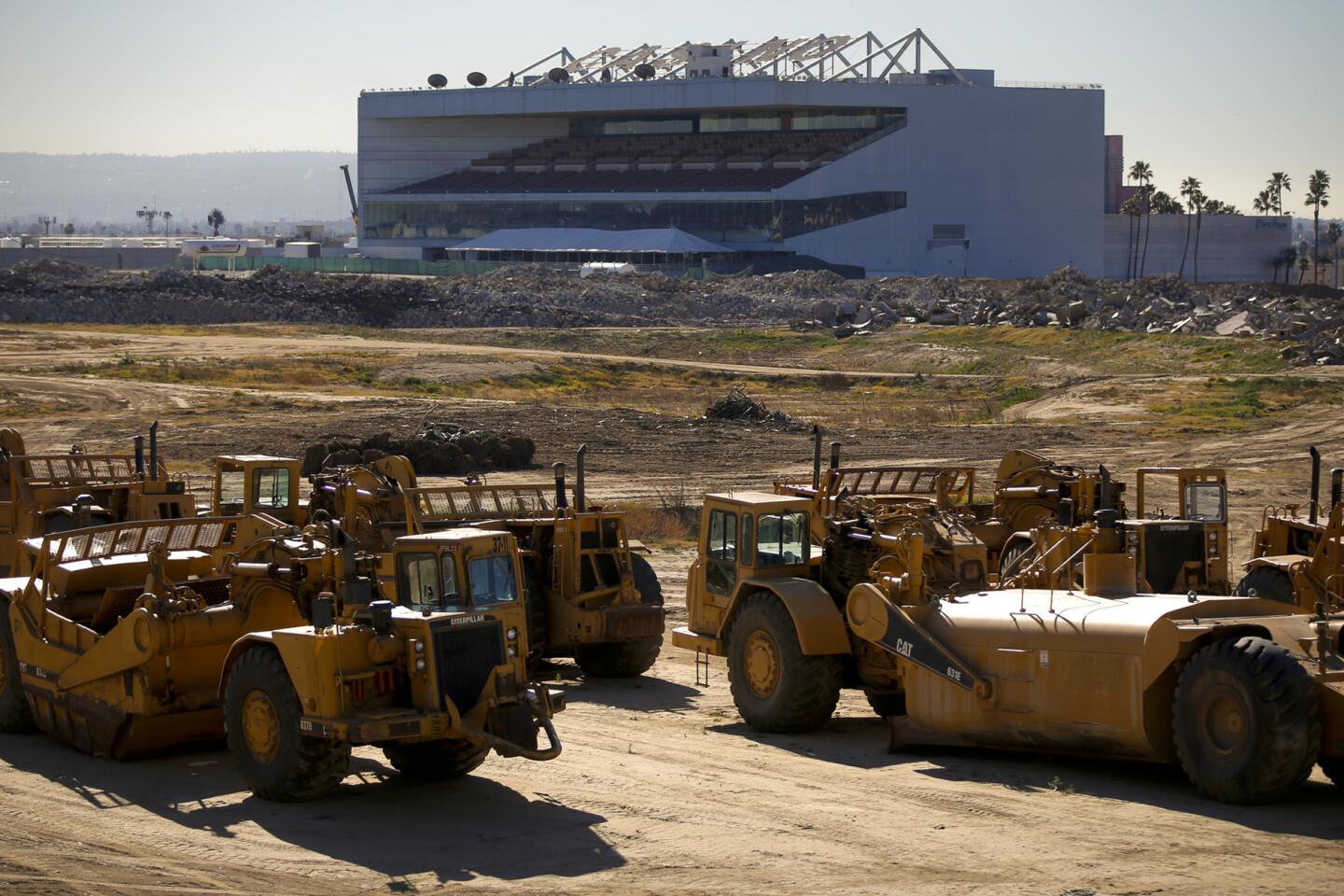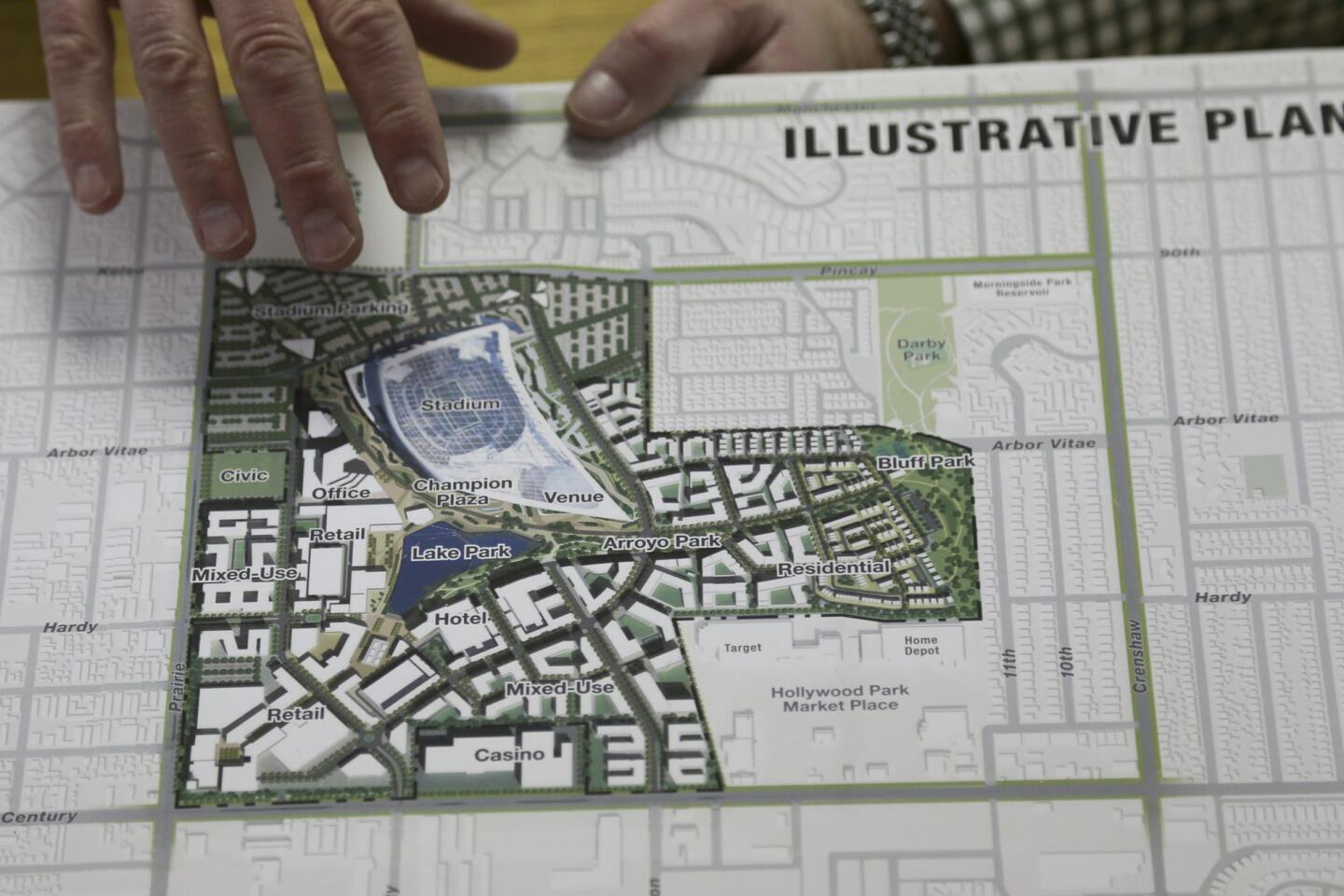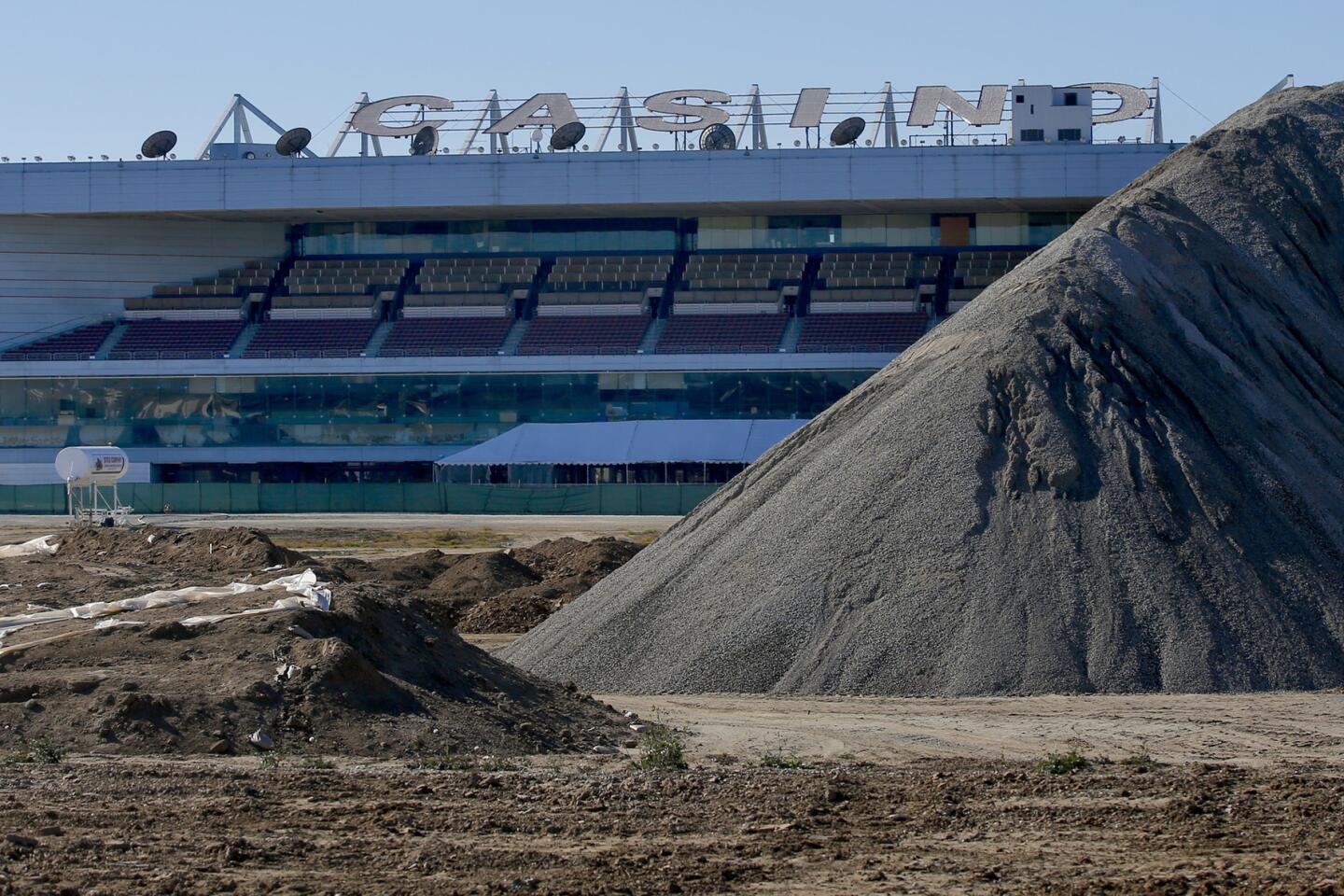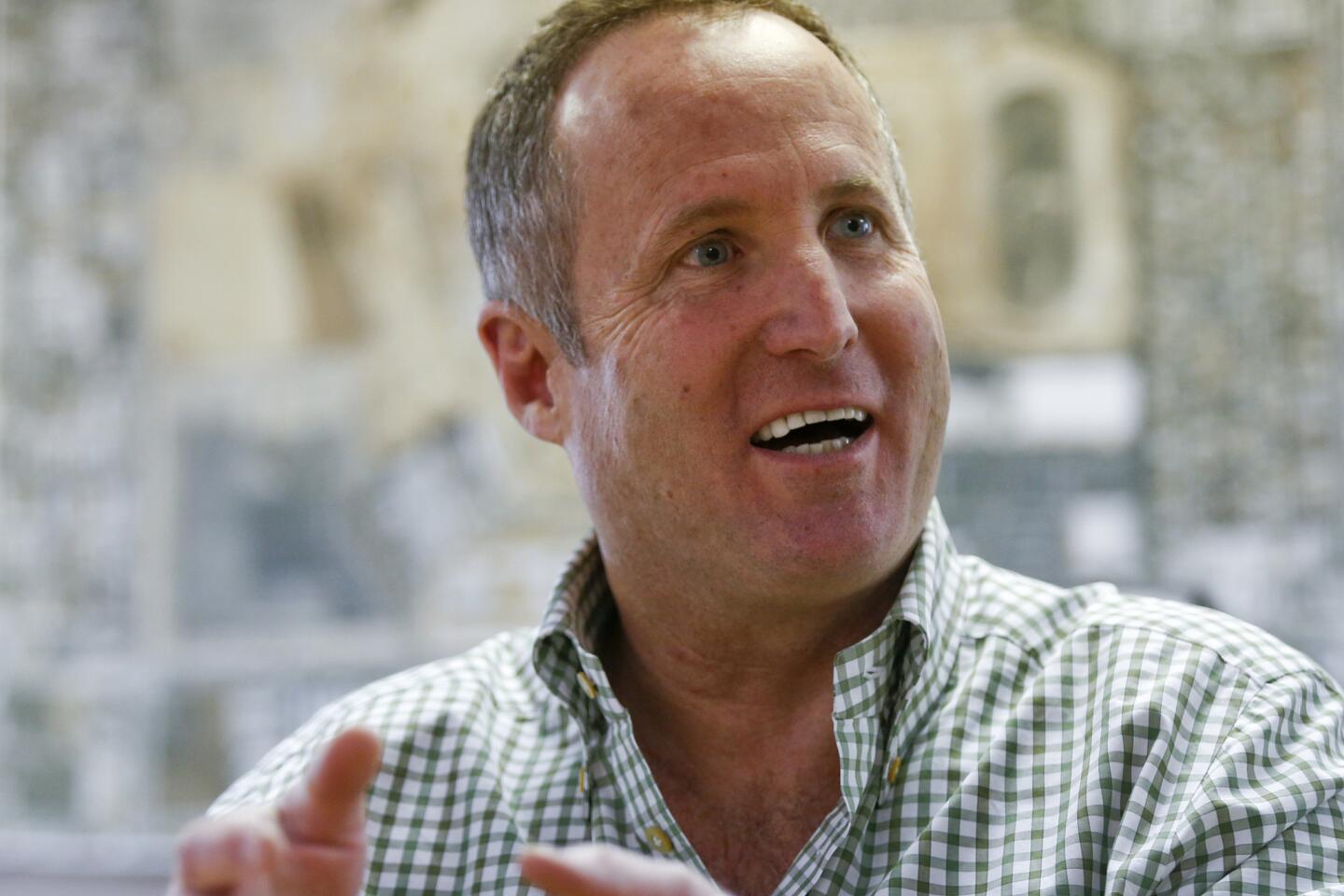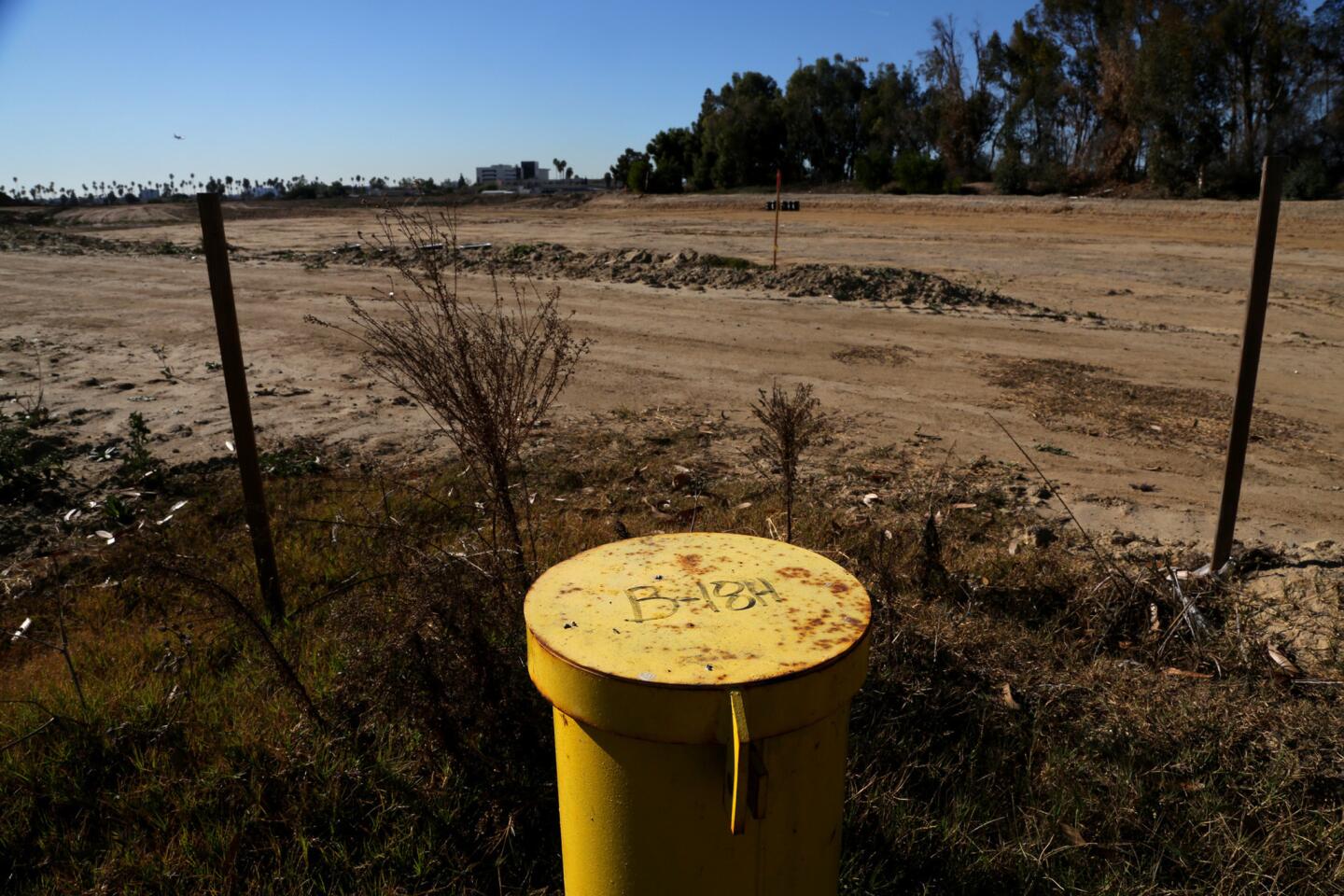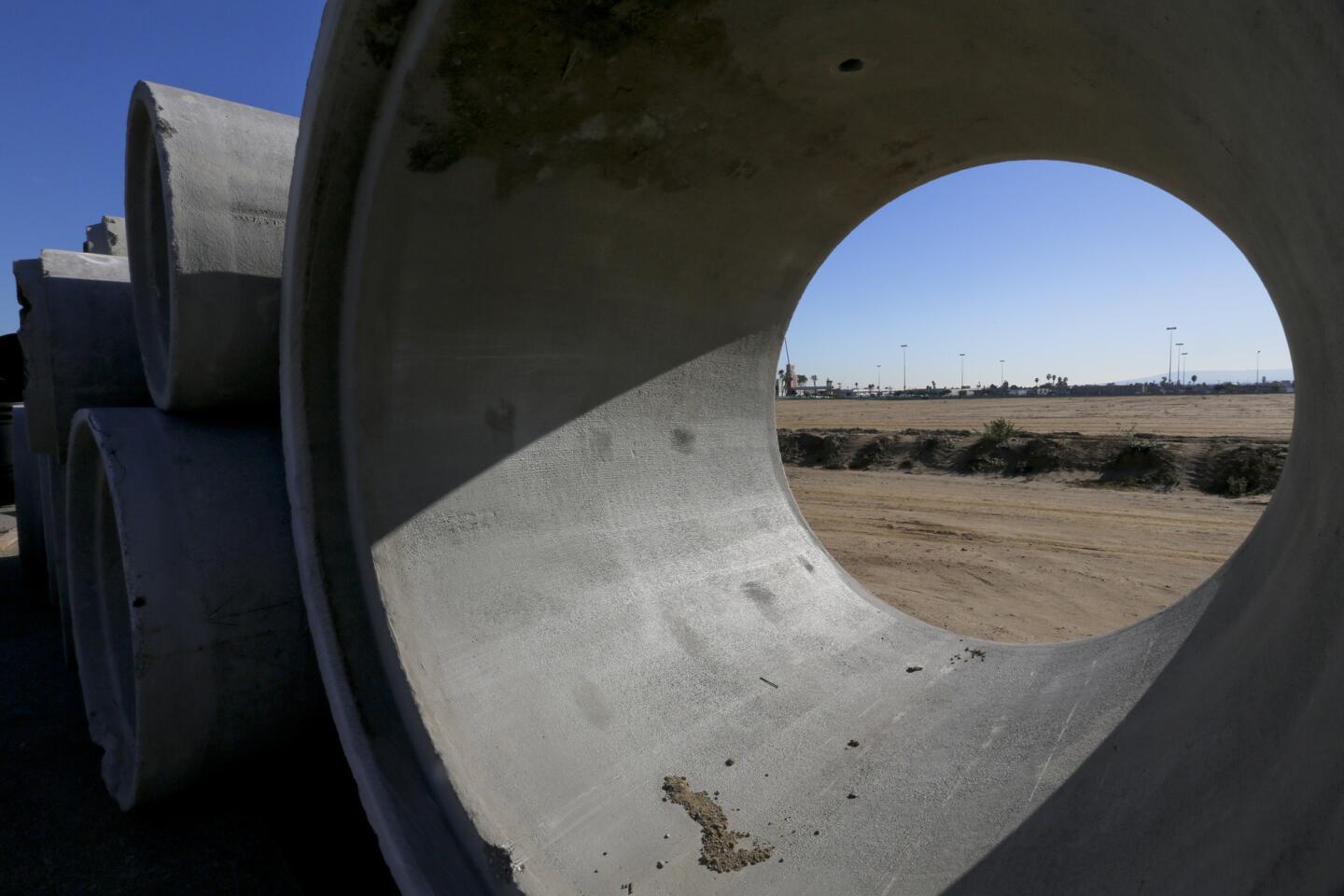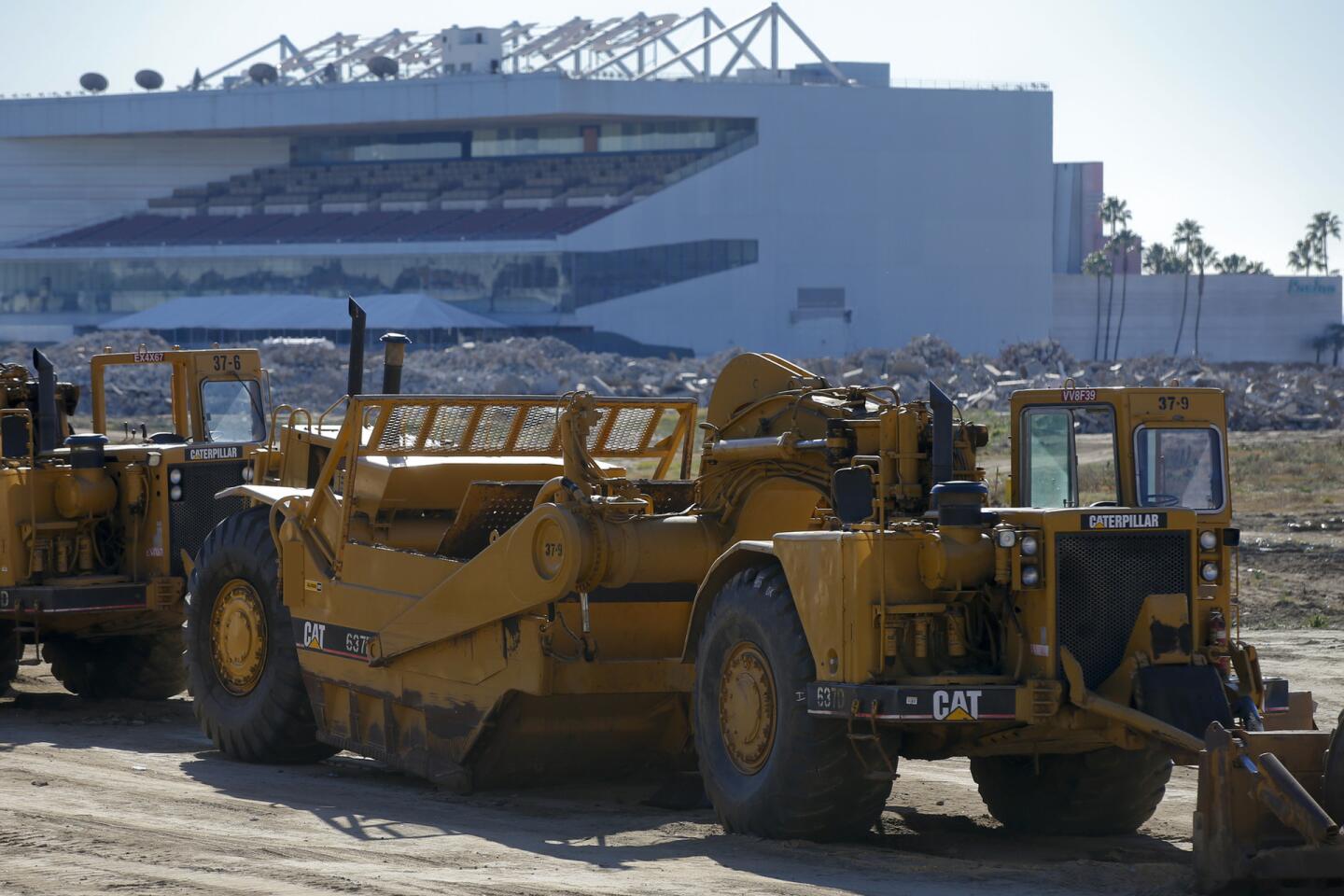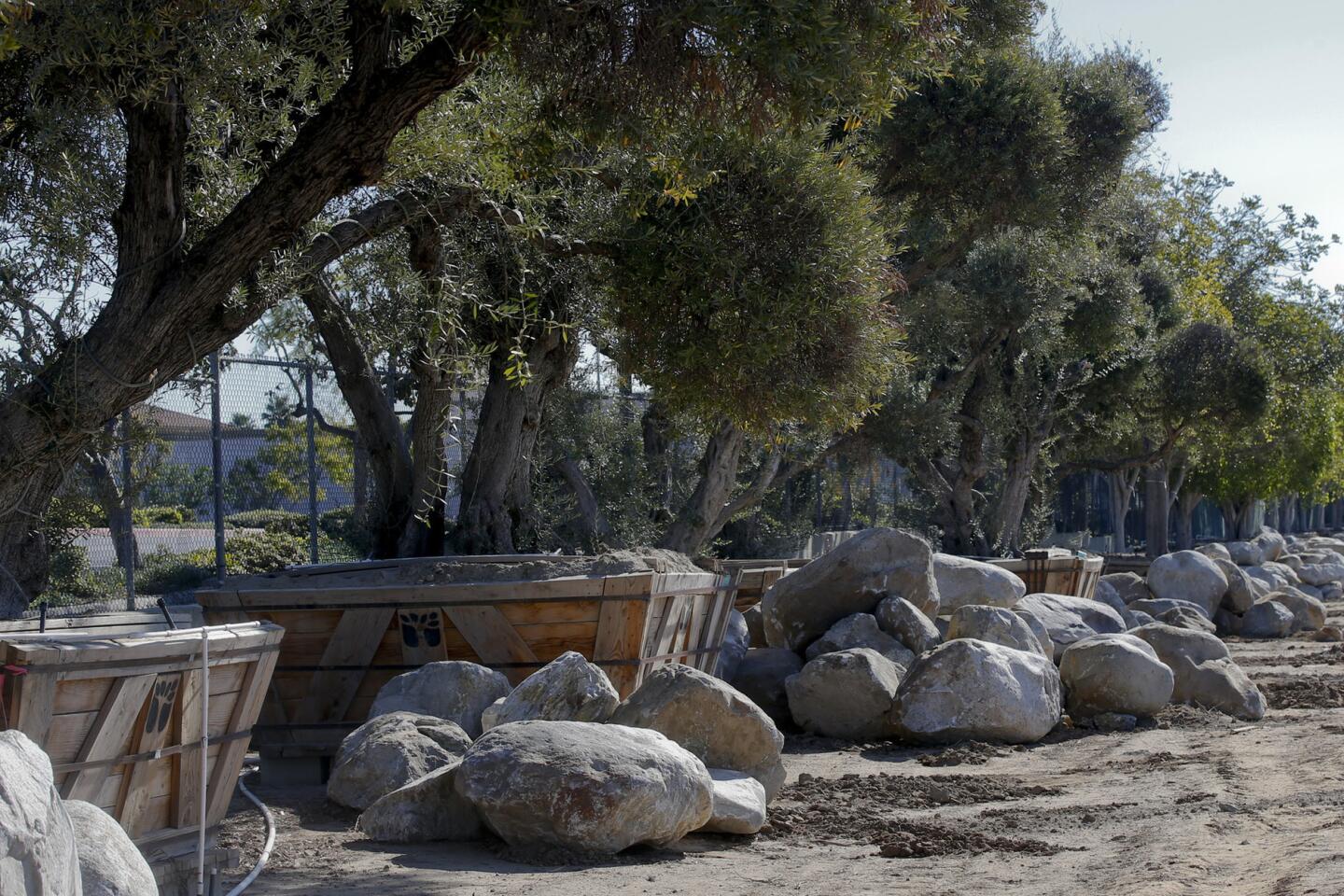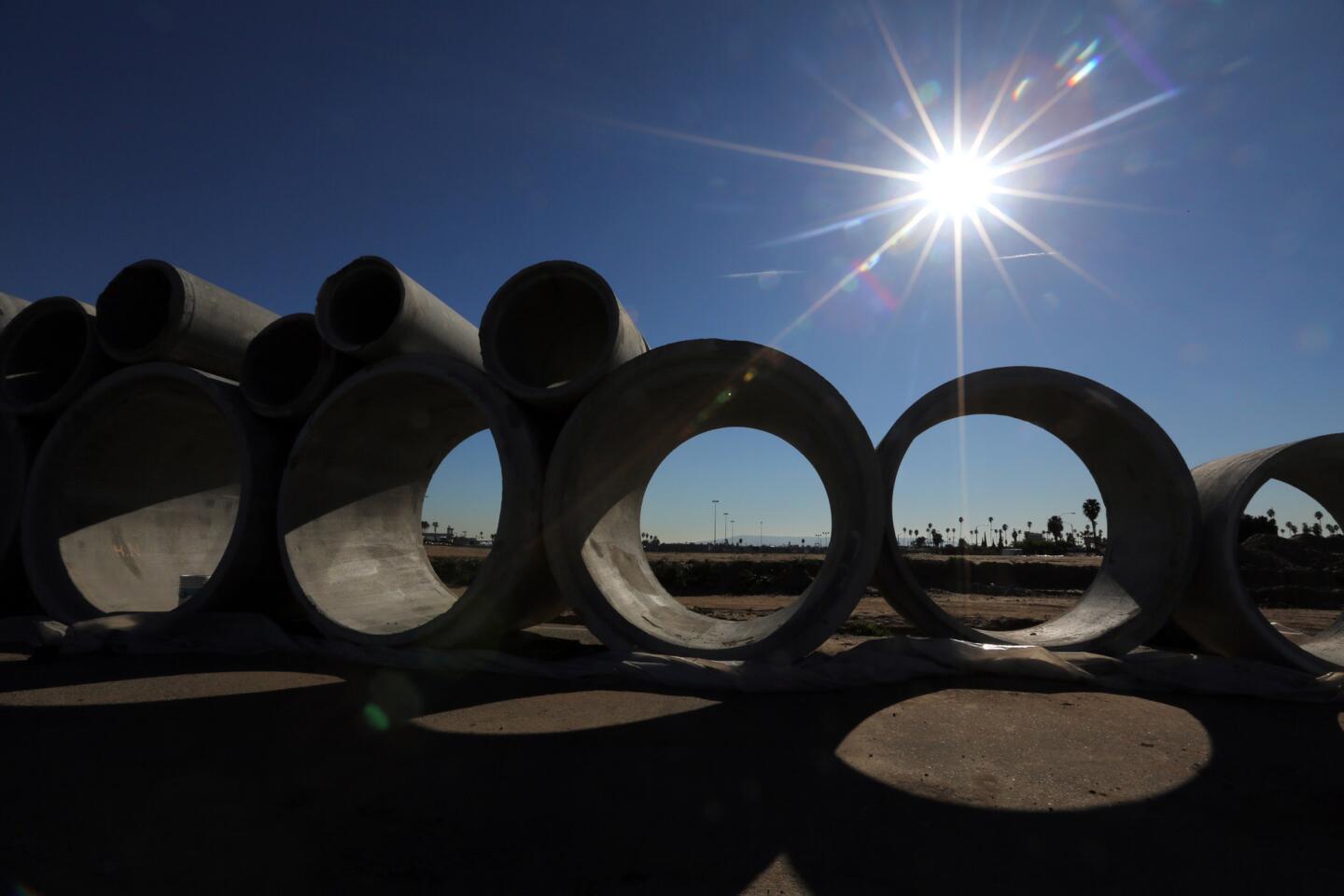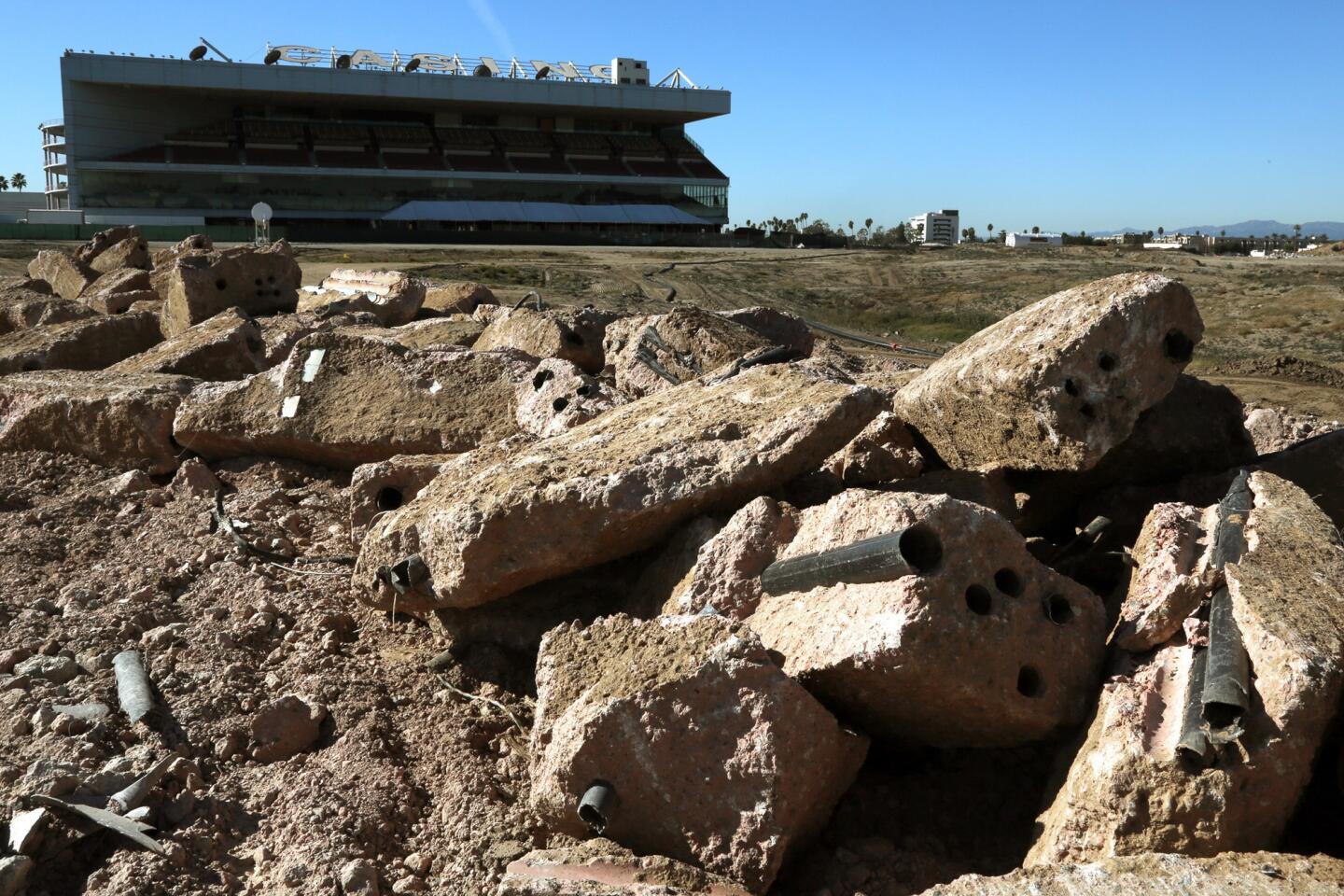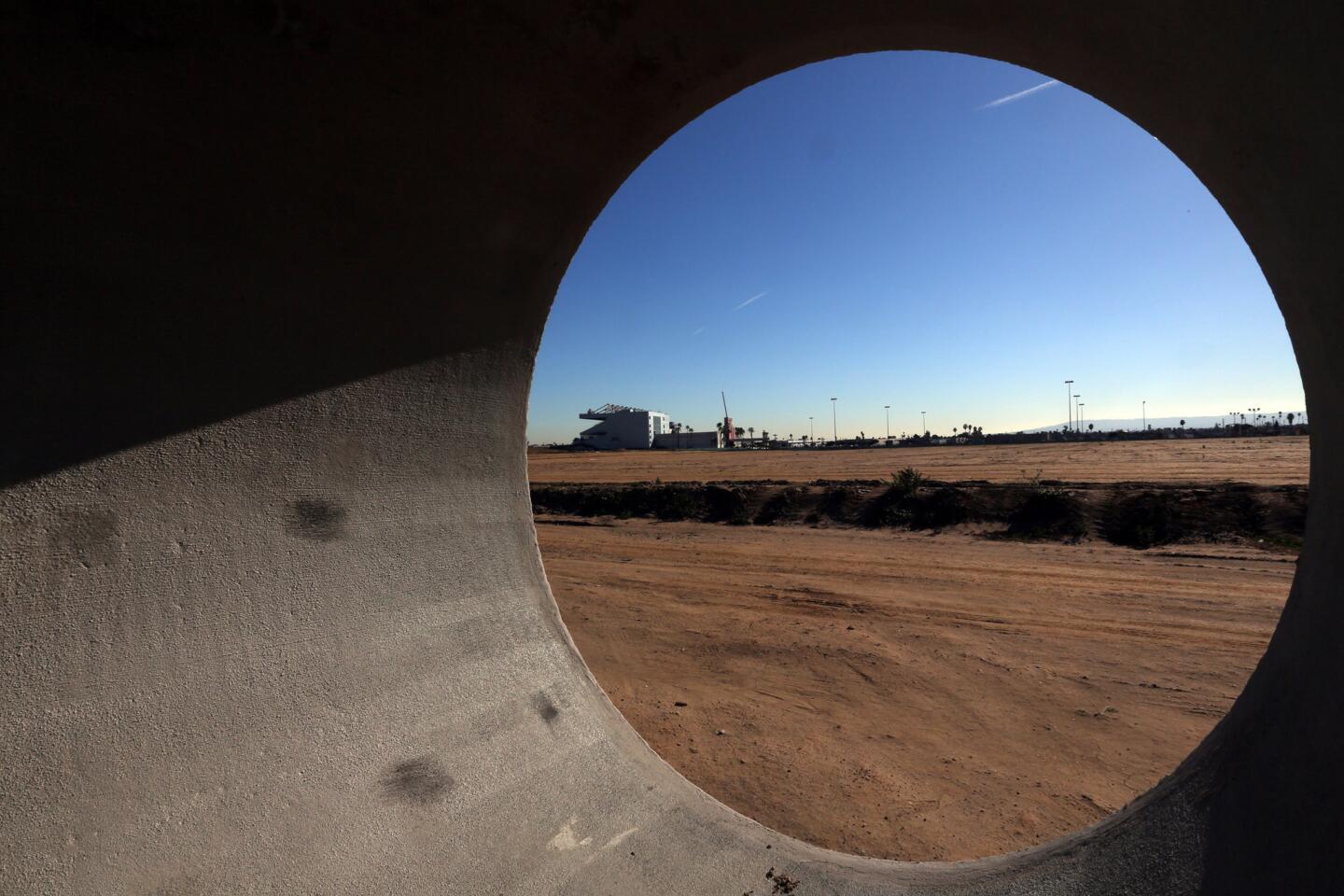How Disney chief Robert Iger’s NFL efforts fell short
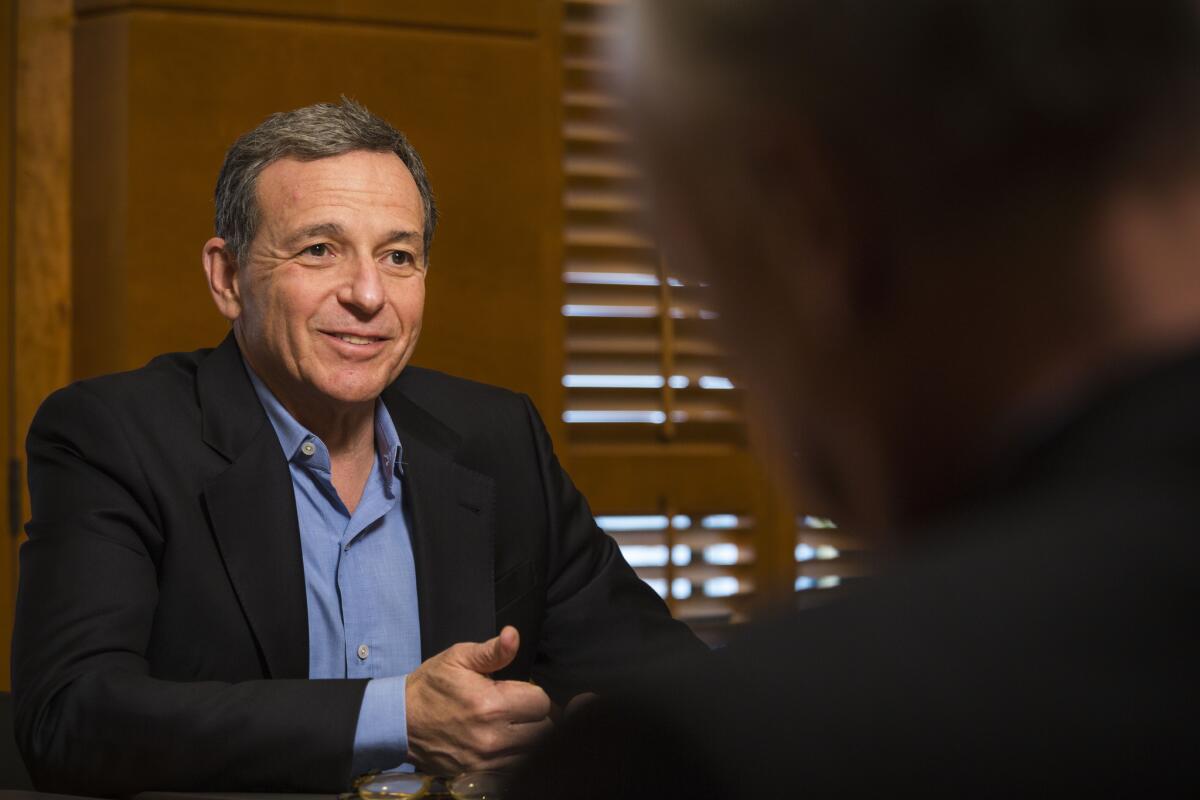
Walt Disney Co. Chairman and Chief Executive Robert Iger speaks with the media Dec. 10 about the NFL stadium proposed for Carson.
- Share via
Walt Disney Co. Chairman and Chief Executive Robert Iger has had a string of hits lately, including clinching the all-time domestic box-office crown with “Star Wars: The Force Awakens.”
Last week, however, he was dealt a rare setback – NFL owners voted to allow the Rams franchise to move to Inglewood, rejecting a rival plan backed by Iger to build a stadium for the San Diego Chargers and Oakland Raiders in Carson.
When Iger, 64, was named non-executive chairman of Carson Holdings, the joint venture of the Chargers and Raiders, it was considered a boost to the teams’ effort. At the time of his November appointment, the project put forward by billionaire Rams owner Stan Kroenke was seen as the favorite.
Iger, who was given an option to buy a minority stake in either the Chargers or the Raiders, was touted for his expertise in entertainment, marketing and development.
However, sports business insiders said the deck was stacked against Iger at the Jan. 12 NFL owners meeting in Houston. In the weeks leading up to the vote, a consensus among owners was coalescing around an alternative that involved pairing the Rams with the Chargers in Inglewood.
At the meeting, the two original proposals didn’t have enough votes to win outright, leading to a compromise that gives the Chargers an option to join the Rams in Inglewood.
“When [Iger] got involved, it was an ‘either-or,’” said David Carter, executive director of the Sports Business Institute at the USC Marshall School of Business. “As things progressed, additional options came into focus. The influence exerted by a handful of owners carried far more sway than his being attached to the project.”
Full Coverage: The NFL’s return to Los Angeles>>
As a result, Iger won’t get the chance to oversee a $1.7-billion real estate development and help guide the NFL’s return to Los Angeles after a 21-year absence. Iger’s option to buy a stake in either of the teams is off the table, according to Mark Fabiani, special counsel to Chargers president Dean Spanos.
Fabiani said Iger was key in helping ensure that the NFL made a decision on the Los Angeles question now rather than later. Since the Rams and Raiders left Southern California after the 1994 season there have been countless busted efforts to bring a team back, including recent high-profile failures in downtown L.A. and the City of Industry.
“We think Bob Iger played a big role in helping this decision get made now,” Fabiani said. “Even though it is a compromise and so not the perfect decision for us, it is a good decision because it brings the NFL back to Los Angeles, and we are happy it got made.”
But not everyone is happy with how Iger handled the process.
Albert Robles, the mayor of Carson, said that he felt the Disney CEO did not extend to him the level of “courtesy” he’d expected and that his input was not sought.
Robles said he was counting on Iger to bring to the project the sort of “pizazz” for which Disney is known.
“I was then told he’s been the CEO for 10 years or something like that and the value of Disney has skyrocketed because of his Midas touch,” Robles said. “And publicly that’s what I ran with.”
But Robles said that he never got the chance to meet with Iger in person and only spoke to him once on the telephone after initiating the call. Robles said he talked to Iger briefly just days before Disney’s Dec. 17 release of “Star Wars: The Force Awakens” and the executive told him that his NFL efforts were going “extremely well” and that he was “busy with the ‘Star Wars’ opening night.”
“And we never spoke again,” said Robles. He added that he had expected to have an ongoing and substantive dialogue with Iger and the other leaders of Carson Holdings.
“Would it have mattered at the end of the day? Probably not – this isn’t about sour grapes,” Robles said.
Iger declined to comment.
In a statement, Carson Holdings said it values its relationship with Robles and other city officials, and noted that Spanos had conveyed that message in a Jan. 15 letter to the mayor and City Council.
Sports business experts said that NFL owners were far more focused on the wider issue of bringing the league back to Los Angeles rather than the cities vying for the league’s favor.
“In the end, this had very little to do with Carson -- or Inglewood for that matter,” said Marc Ganis, founder and president of SportsCorp Ltd., a sports business consulting firm. “It had much more to do with the threshold issue of whether the NFL should come back to L.A., which teams, and which project.”
For Iger -- who is expected to depart Disney after his contract expires in 2018 -- the chance to become a minority owner of an NFL franchise and oversee development of a 168-acre project next to the 405 Freeway was seen as a fitting next act for a star executive.
Burbank-based Disney has become the envy of the entertainment world under Iger: Its multibillion-dollar acquisitions of Pixar, Marvel and Lucasfilm are seen as major successes. The company is set to open a massive resort in Shanghai, and its stock price has more than tripled under his watch.
“The bar is set very high for him for expectations and success,” said Carter. “It’ll be a short-term hiccup rather than anything that will shake anyone’s confidence in his judgment and business acumen.”
By the time Iger joined the Carson group in November -- accepting a salary of $1 per year -- Kroenke and the Rams had already benefited from more than a year head start.
Kroenke, a real estate magnate, acquired the land for his development in January 2014 and in March showed other NFL owners his detailed plans for a project that could cost nearly $3 billion. The 298-acre mixed-use development would include entertainment, retail and office space and has been dubbed an “NFL Disneyland.” Carson Holdings didn’t close on its land purchase until May.
Despite Iger only becoming involved two months ago, his experience at Disney was seen as a valuable asset to Carson Holdings. Disney also owns ESPN, a key broadcast partner of the NFL, giving Iger strong credentials in the sports business world. In December, SportsBusiness Daily named Iger No. 1 on its annual list of the most influential figures in sports business. (The Carson bid was arranged so that it would not interfere with Iger’s duties at Disney.)
Iger, a huge sports fan and longtime Los Angeles resident, became a prominent advocate for bringing the NFL back to L.A.
“I think it would be great for the community to have an NFL team,” Iger said in December. “It’s high time that we have that. I really was interested in the civic side of this. But I’ve also thought about my life post-Disney and how I would spend my time and my energy. ... I thought that would be a great next step for me.”
Doug Allen, the former assistant executive director of the NFL Players Assn., said that despite Iger’s involvement, Kroenke’s proposal included a level of refinement that was not matched by the Carson offering.
“I think Kroenke had more in the way of resources to bring to the table,” said Allen, who also is the former executive director of the Screen Actors Guild and now is a professor at Pennsylvania State University. “I think the Rams argued it better than the Raiders or the Chargers.”
daniel.miller@latimes.com
Staff writers Nathan Fenno and Sam Farmer contributed to this report.
Follow @DanielNMiller for film business news
MORE
San Francisco just learned the cost of doing the NFL a favor
Rams heat up Inglewood’s real estate market
Plaschke: The San Diego Chargers should stay right where they are
Rams get thousands of season-ticket deposits and ‘could not be more pleased’
More to Read
Sign up for The Envelope
Get exclusive awards season news, in-depth interviews and columnist Glenn Whipp’s must-read analysis straight to your inbox.
You may occasionally receive promotional content from the Los Angeles Times.

